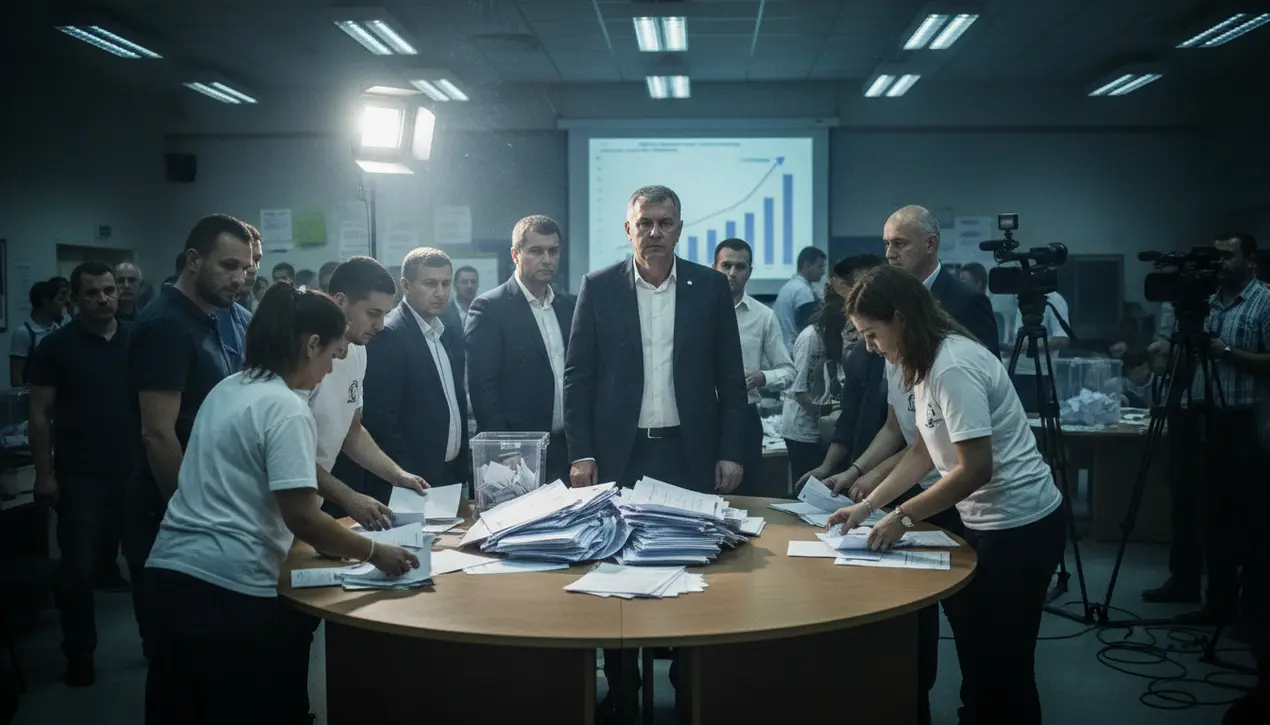
PoliticselectionsPresidential Elections
Republika Srpska Holds Snap Presidential Election After Dodik's Removal
RO
Robert Hayes
6 hours ago7 min read2 comments
The political machinery in Bosnia's Republika Srpska entity has been thrust into a state of high-stakes recalibration, grinding into motion for a snap presidential election following the consequential removal of the seasoned nationalist Milorad Dodik from office. This is not merely a routine electoral cycle; it is a seismic event in the fragile political ecology of the Balkans, echoing the structural tensions that have defined the region since the Dayton Accords painstakingly stitched the Bosnian state together.Dodik, a figure as polarizing as he is enduring, has strategically thrown his considerable political weight behind Siniša Karan from his own Alliance of Independent Social Democrats (SNSD), a move calculated to maintain his iron grip on the entity's levers of power even from a temporarily diminished position. Yet, the opposition Serbian Democratic Party (SDS) is mounting a formidable challenge, publicly asserting that their candidate holds a leading position in the polls—a claim the SNSD apparatus has been quick to dismiss as opposition fantasy.This electoral contest must be understood as the latest front in a long-running cold war within Serb politics, a battle not just for a presidency but for the very soul and future trajectory of Republika Srpska. The backdrop is one of profound constitutional fragility and heightened international scrutiny, with Dodik's long-standing rhetoric and actions, often challenging the sovereignty of the Bosnian state and cozying up to Moscow, having drawn sanctions from the United States and strained relations with the European Union.A victory for Karan would signal a continuation of this confrontational path, likely deepening institutional paralysis in Sarajevo and further complicating Bosnia's already stalled aspirations for Euro-Atlantic integration. Conversely, an SDS victory, while potentially offering a more pragmatic approach to state-level politics, would represent the most significant political rupture in the entity in over a decade, potentially triggering internal turmoil within the Serb political bloc.The campaign is thus being waged under the long shadow of history, with parallels to the political maneuvering of the 1990s, where control of presidential palaces was synonymous with control over national destiny. Analysts are watching voter turnout and the mood in rural heartlands versus urban centers with acute interest, knowing that the results will send immediate shockwaves through the corridors of power in Belgrade, Brussels, and Washington. The fundamental question this election poses is whether Republika Srpska will double down on its separatist-leaning identity politics or tentatively pivot toward a more cooperative, albeit still fiercely autonomous, future within the Bosnian framework.
#featured
#Republika Srpska
#snap election
#Milorad Dodik
#SNSD
#SDS
#Siniša Karan
#Bosnia
Stay Informed. Act Smarter.
Get weekly highlights, major headlines, and expert insights — then put your knowledge to work in our live prediction markets.
Related News
Comments
Loading comments...
© 2025 Outpoll Service LTD. All rights reserved.